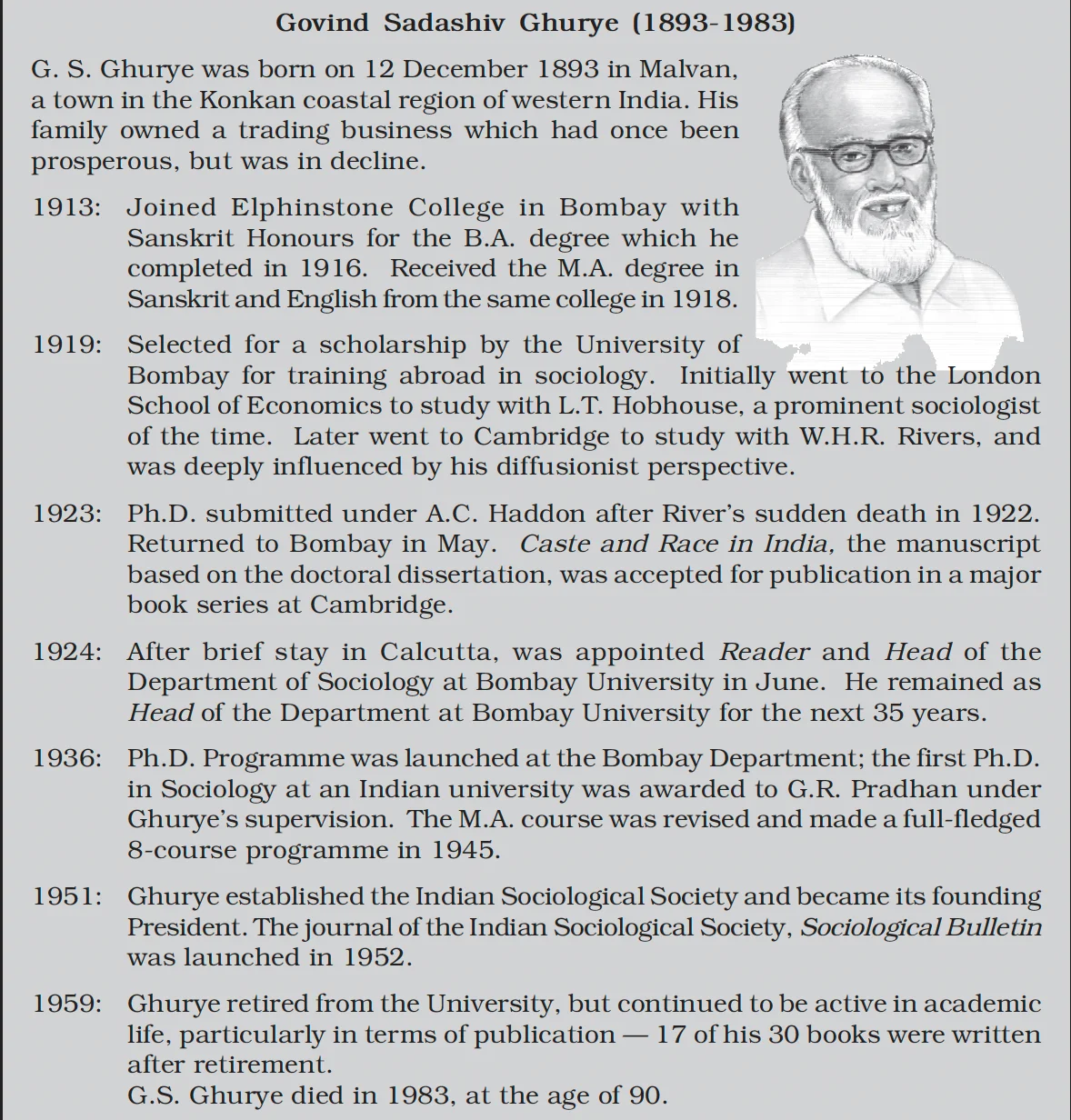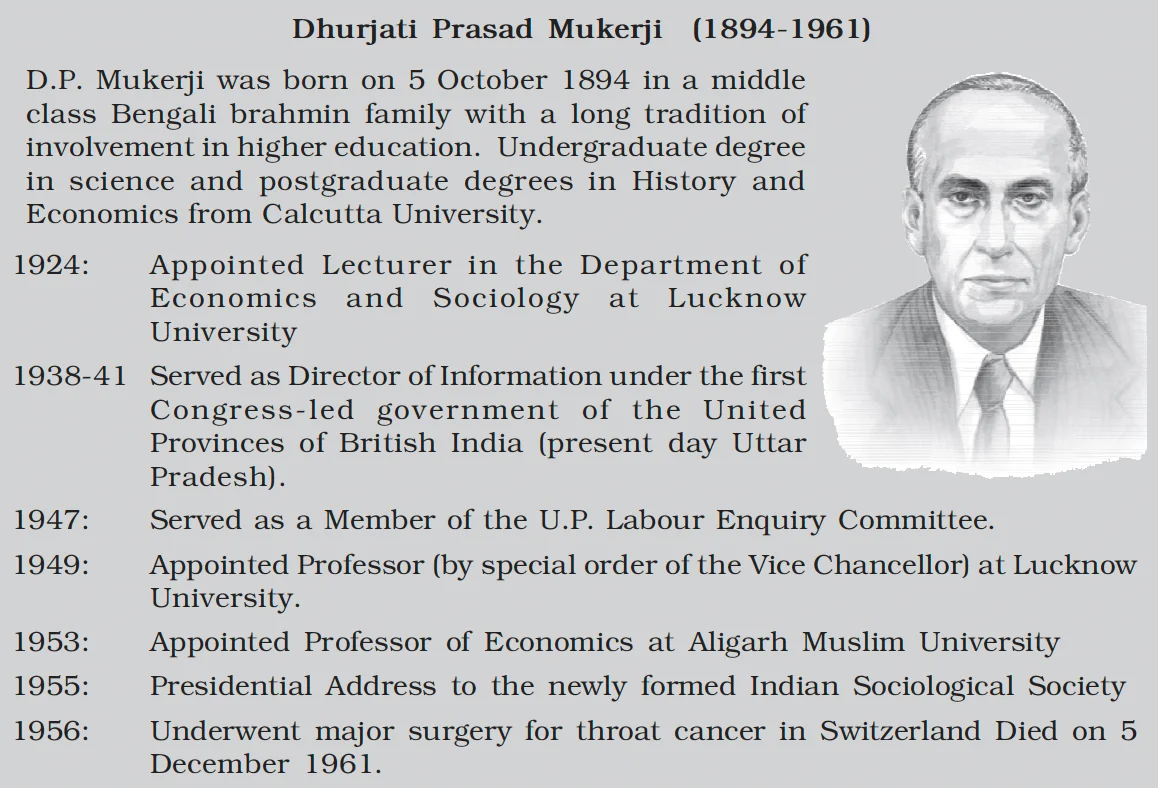![]() 13 Dec 2023
13 Dec 2023
In India, interest in sociological ways of thinking is a little more than a century old, but formal university teaching of sociology only began in 1919 at the University of Bombay. In the 1920s, two other universities — those at Calcutta and Lucknow also began programmes of teaching and research in sociology and anthropology. Today, every major university has a department of sociology, social anthropology or anthropology, and often more than one of these disciplines is represented.
Indian sociology had to address the colonial experience intertwined with modernity, explore social anthropology in a civilization with ‘primitive’ societies, and find its place in post-colonial India geared towards planned development and democracy.
Indian Sociologist G.S. Ghurye’s Enduring Legacy: Leading the Sociology Renaissance in Bombay


POINTS TO PONDER
D.P. Mukherjee highlights the role of ‘Anubhava,’ or personal experience, in reshaping people’s perceptions of society, citing examples such as the Bhakti and Sufi movements. Do you believe a similar phenomenon is occurring concerning globalization and its impact on Indian society? If so, how do you think it is influencing Indian society?”
Mukerji’s Sociological perspective on Mechanisms of Societal Transformation
Mukerji’s Perspective on identifying Principles of change in Indian Tradition:
<div class="new-fform">
</div>